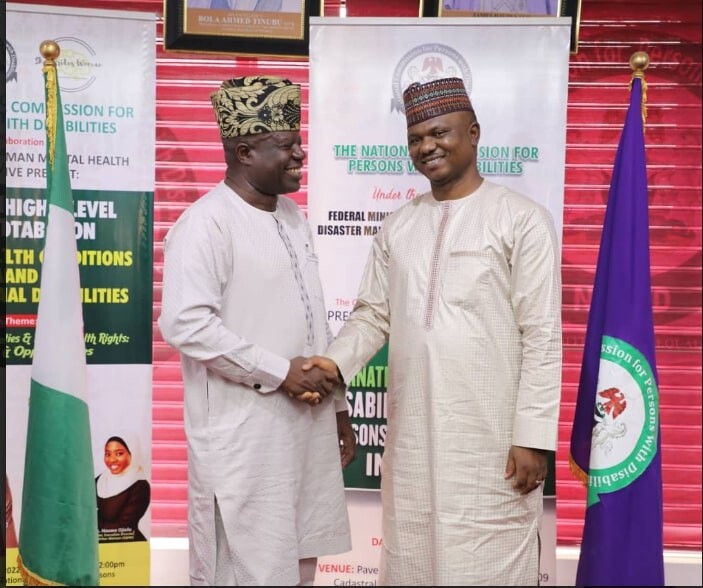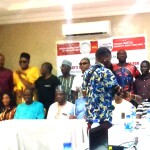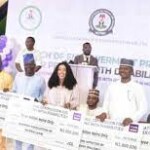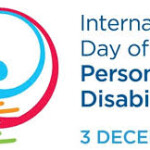By Gbenga Ogundare
For the second time in a row after the Discrimination Act 2018 came into force, the Nigerian House of Reps has appointed another Disability Committee chairman who neither has a disability nor an experience in studying or managing disabilities.
Notwithstanding, the National Commission for People With Disabilities (NCPWD) expressed optimism that the in-coming chairman Akanji Bashir Daodu will deliver the goods.
“This is the beginning of greater things to come as we now have a veteran not just in the medical field but also one that understands the psychology of an average person with disability,” said James Lalu, the commission’s executive secretary, in Abuja on August 21.
Those shocked by Lalu’s sudden switch to viewing disabilities from the medical angle—rather than sticking with the rights view—may have to admit his excitement sprang out of the political expediency that threw up the lawmaker representing the Oshodi-Isolo Constituency, Lagos, as the House committee chairman.
In the 360-member strong House of the tenth assembly, there is no person with disability elected to speak for the community.
That makes the lawmaker an almost round peg for the round hole he’s about to fill, considering the areas of competence and experience of those who have so far chaired the disability committee since 2019.
Former President Muhammadu Buhari at that time assented to the law which set up the NCPWD the House committee now oversees.
During his visit to the commission, the honorable revealed he worked as chief medical officer of some reputable hospital in Atlanta Georgia, US, and he is bringing his wealth of experience to bear on the committee.
His predecessor and pioneer chairman Miriam Onuoha representing Okigwe, Imo, is an estate/environmental management expert. And she happened to be the only female lawmaker from the southeast that made it to the lower chamber in 2019.
Many disability management experts believe most government officials in charge of disability management don’t have the knowledge their responsibility demands. This knowledge, the experts say, comes either from personal experience or study.
Emma Asonye, the global project lead at S-DELI, an NGO focusing the deaf, told ER if the officials of Nigeria’s disability agencies and committees have no loved ones who are impaired, there won’t be any conscious action in policymaking to understand what people with disabilities need.
Daodu never initiated any legislative action relating to disabilities in the House for the past four years. Nor did his predecessor except when she took the committee chair.
But the new chairman has made promises.
“I am already working on an upward review of the budgetary allocation for the commission together with relevant members of the House of Reps, and this means all hands must be on deck,” he said.
The disability community clamoured for a 10 percent affirmative action (above the 5 percent the law stipulates) at the inauguration of the President Bola Tinubu administration.
As things stand now, they have yet to get any in both the executive and legislature.







